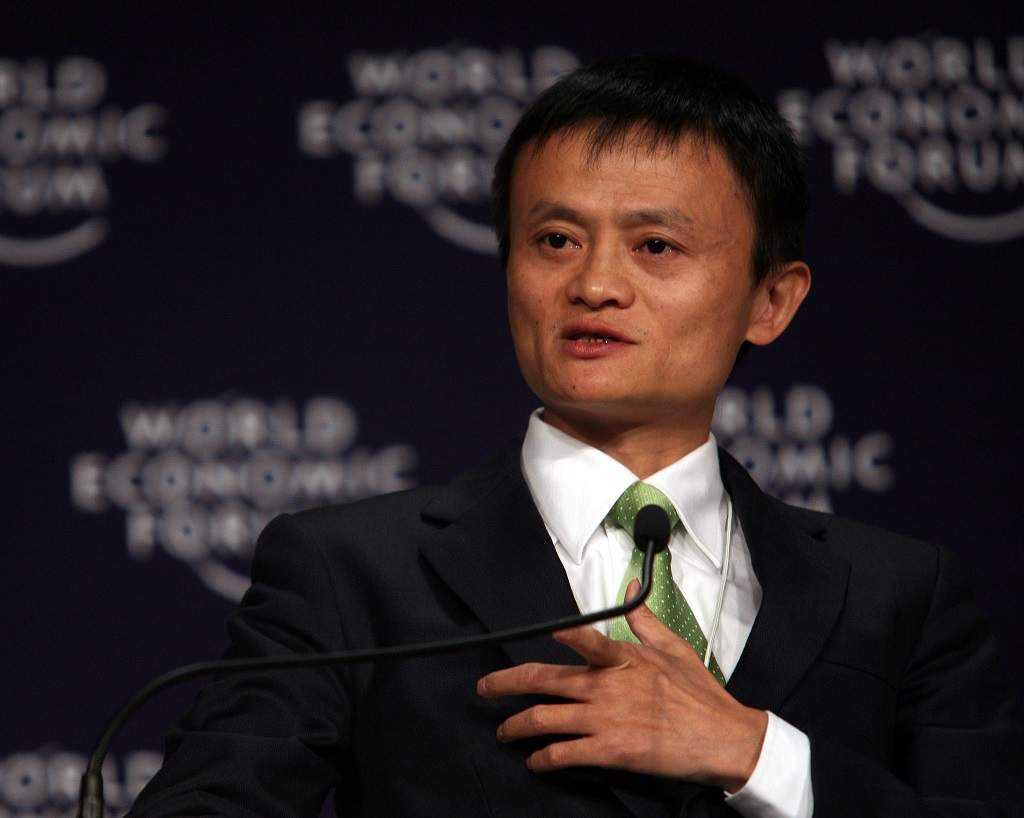Что произошло
Крупные китайские компании — Alibaba, Huawei и Xiaomi — изменили дизайн своих веб-сайтов на черно-белую цветовую гамму, чтобы почтить память жертв Нанкинской резни 1937 года.
- Компании изменили дизайн домашних страниц на своих веб-сайтах и в приложениях, однако в режиме просмотра товара версии остались прежними.
- Как пишет Vice, дизайн сайтов изменили по указу китайских властей. Издание подчеркивает, что в дни траура местные предприниматели показывают свою приверженность идеологии правящей КПК, чтобы избежать цензуры и различных ограничений со стороны правительства. Таким образом, как указывает Vice, предприниматели продемонстрировали свою лояльность политике правящей Коммунистической партии Китая (КПК).
- Многие пользователи негативно отреагировали на решение компаний. «Я открыл Taobao и подумал, что Джек Ма (основатель Alibaba Group. — Прим. ред.) умер», — написал один из пользователей китайского сервиса микроблогов Weibo.
- «Если Taobao будет выглядеть так каждый день, я, вероятно, сэкономлю довольно много денег», — написал другой пользователь.
Детали
Vice отмечает, что день траура стали использовать звезды и их фанаты, чтобы продемонстрировать поддержку политики властей. Таким образом они также пытаются избежать цензуры, которой КПК подвергает многих поп-исполнителей из-за их поведения и поступков, якобы вредных для общества.
- Например, многие китайские поп-исполнители выложили посты о Нанкинской резне в своих соцсетях, а их фандомы объявили 13 декабря «днем без развлечений».
- В связи с трауром китайские фанаты американской исполнительницы Тейлор Свифт решили не праздновать день рождения певицы 13 декабря, а отметить его на следующий день.
Тенденция
Крупные компании по-разному демонстрируют свою причастность к различным событиям и памятным датам.
- Например, в 2020 году компания Mercedes-Benz продемонстрировала временный логотип, в дизайн которого внесли изменения из-за пандемии COVID-19. В новой версии эмблемы уменьшили трехлучевую звезду, за счет чего между ней и кругом появилось пространство. Таким образом в компании пропагандировали необходимость соблюдать дистанцию, чтобы обезопасить себя и других от заражения.
- Два других крупнейших немецких автобренда также изменили свои логотипы, чтобы напомнить о социальной дистанции: четыре кольца Audi перестали соприкасаться, а между литерами V и W в логотипе Volkswagen появился зазор. Российское представительство Audi на время перекрасило кольца в «цвета надежды» — желтый и красный, чтобы поддержать докторов и медсестер.
- Поисковые браузеры нередко меняют дизайн своих домашних страниц в годовщины со дня рождения известных писателей или ученых. Например, 24 марта 2021 года «Яндекс» временно изменил свой логотип в честь 130 лет со дня рождения физика Сергея Вавилова. В компании свое решение объяснили тем, что на улице Вавилова находился Вычислительный центр РАН, где в 2001 году открылся первый офис «Яндекса».
Biggest Chinese tech companies
Alibaba
If Amazon, eBay and PayPal merged into one, they’d probably end up resembling something similar to Alibaba – the multinational behemoth founded in 1999 by China’s richest man Jack Ma.
The Hangzou-based conglomerate operates in more than 200 countries and holds majority shares in various firms – including China’s largest shopping website taobao.com, as well as Sina Weibo and Youku Todou, which operate like Twitter and YouTube, respectively.
 Alibaba founder Jack Ma (Credit: Natalie Behring)
Alibaba founder Jack Ma (Credit: Natalie Behring)
Its sprawling network of online retail marketplaces have 601 million active users, while its various mobile services reached 666 million customers in 2018.
Alibaba has more than 80,000 employees and notched $50bn (£38bn) in revenue last year, making it the largest e-commerce company in the world, with a product volume double that of Amazon and eBay combined.
Huawei
Huawei is a Shenzhen-based tech company that sold more smartphones (52 million) than Apple (46.9 million) in the third quarter of 2018 – though it still lagged someway behind South Korea’s Samsung (72 million).
The company sells various telecoms equipment to customers in more than 170 countries, which earned it $47.4bn (£36.4bn) in revenue for the first half of last year – a 15% increase compared with the same period in 2017.
 Huawei is now the world’s second largest smartphone manufacturer, behind Samsung
Huawei is now the world’s second largest smartphone manufacturer, behind Samsung
It has recently been the subject of international suspicion, however, with the US government claiming its products pose national security risks and publicly advocating against its citizens’ use of Huawei phones.
The firm’s CFO Meng Wanzhou, daughter of its reclusive CEO Ren Zhengfei, was arrested in December last year by Canadian police after it was alleged the 46-year-old had been selling telecoms equipment to Iran in direct breach of the country’s sanctions.
Currently on bail and living on a strict curfew out of a house in Vancouver, Ms Wanzhou is due in court early next month when the Supreme Court of British Columbia will decide if she is to be extradited to the US.
Tencent
Since the company launched its IPO on the Hong Kong stock exchange in 2004, Tencent has gone on to become China’s biggest social network and the sixth largest internet company in the world, with a current market cap of $419bn (£318bn).
This is down from a high of more than $570bn (£433bn) in 2017, however, as the business experienced a torrid 2018 when its value nose-dived to less than $350bn (£188bn) amid tightening government regulation and investment uncertainty.
It owns multiple omnipresent social media channels and messaging apps in China including including Qzone, which has more than 620 million users, and WeChat, which has almost 900 million.
Like Alibaba, the list of apps and services under the Tencent umbrella is seemingly never-ending, with everything from cashless payment systems to cloud storage services offered by the company.
Baidu
The dominant search engine in China is Baidu, with some labelling it the country’s answer to Google.
Like Google, its primary revenue stream is the ad space it sells, using the pay-for-placement method to earn income based on the volume of traffic it drives.
 Baidu’s headquarters in China (Credit: Flickr/simone.brunozzi)
Baidu’s headquarters in China (Credit: Flickr/simone.brunozzi)
Founded by Robin Li at the turn of the millennium, the Beijing-based company raised $1.2m (£900,000) in funding from Integrity Partners and Peninsula Capital – both Silicon Valley venture capital businesses.
The firm also offers a range of bespoke online services, including Baidu Encyclopedia, Baidu Government Information Search, the social network Baidu Space and e-commerce platform Baidu Youa.
Xiaomi
Xiaomi was named the fourth-largest smartphone vendor in the world in 2018, behind Samsung, Apple and Huawei.
Founded in 2010, the Beijing-based firm also makes mobile apps, laptops and a range of consumer electronics.
The company has 15,000 employees working out its offices in China, India, Malaysia and Singapore, and has plans to establish a presence in other countries such as Indonesia, the Philippines and South Africa.
Its 2018 revenue surpassed $21bn (£16bn) and in 2014 Xiaomi broke records by selling 15,000 units of its Mi3 smartphone in just two seconds in India, and 2.1 million over the course of one day.
The name “Xiaomi” translates to “millet and rice”, which is a reference to the Buddhist concept of starting small and growing steadily.
And these could soon be among the biggest Chinese tech companies
ByteDance
ByteDance is the tech company behind TikTok, the most popular mobile video app – where it is known as Douyin.
While it was launched there in 2016, TikTok was released to the rest of the world a year later and has already accumulated more than half a billion active users since then.

It was the 16th most downloaded iPhone app of 2018, according to Apple.
The video-sharing platform allows users to record and edit 15-second long clips, and upload them to the app.
With an emphasis on creative and entertaining videos, TikTok describes itself as “the leading global destination for short-form mobile video” – with many users taking advantage of TikTok’s sound editing to record lip-synced videos or comedic short clips.
Off the back of TikTok’s surging popularity, ByteDance secured $3bn (£2.36bn) of funding in October 2018, bringing its valuation to $75bn (£59bn) and making the most valuable start-up ever – beating the likes of Uber and Airbnb.
Sensetime
This last tech company is not one of China’s biggest, but given a few years it may well change that.
Founded in 2014, SenseTime is the most valuable AI-based start-up in the world today, with a worth of more than $4.5bn (£3.5bn).
 One of SenseTime’s key technologies is facial recognition
One of SenseTime’s key technologies is facial recognition
The Hong-Kong-based unicorn has grown exponentially and now leads a growing wave of Chinese AI firms primed to overtake those in the US, offering computer vision and deep learning services.
It works with more than 700 business customers and public institutions across the globe, ranging from the likes of Alibaba and Qualcomm to the Massachusetts Institute of Technology.
SenseTime is also now the largest algorithm provider in China, and possesses the country’s fifth largest AI platform, behind those of Baidu, Alibaba Cloud, Tencent and iFlyTek.




























